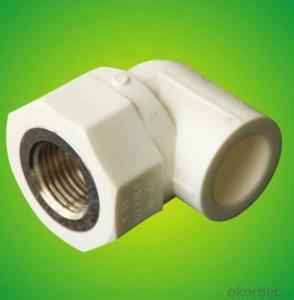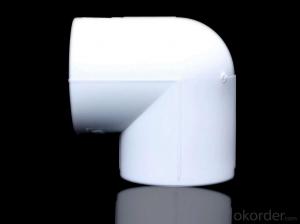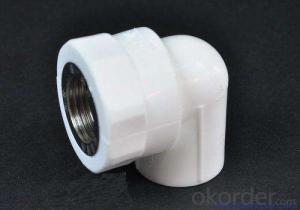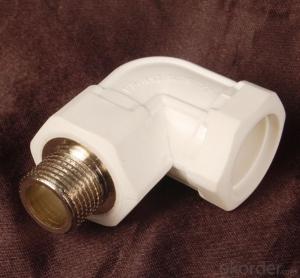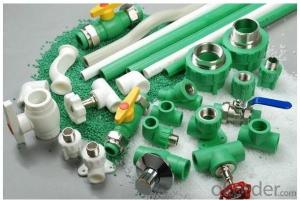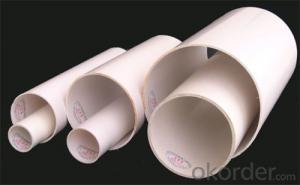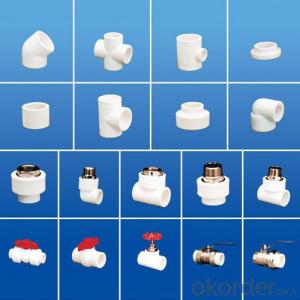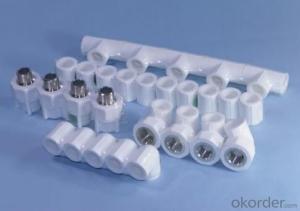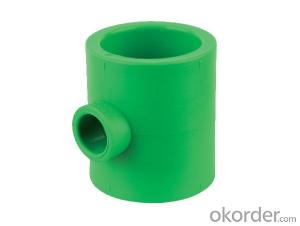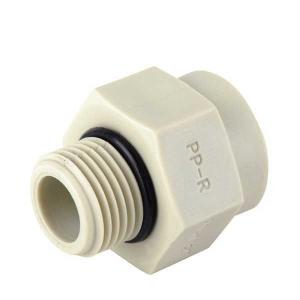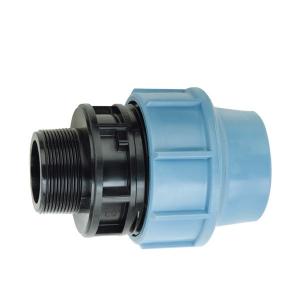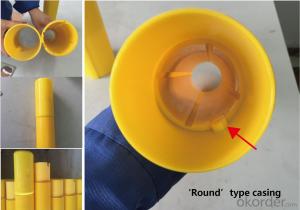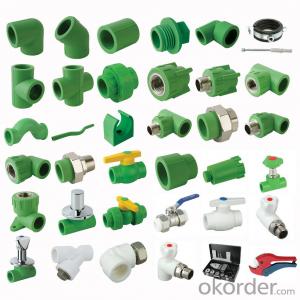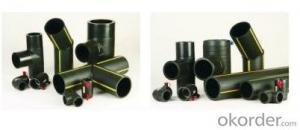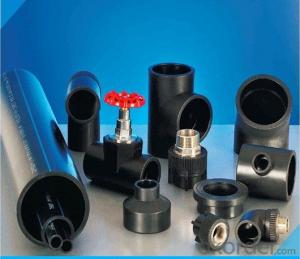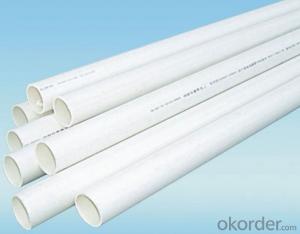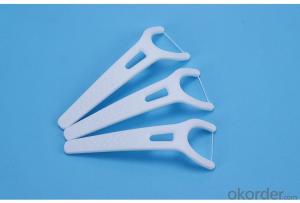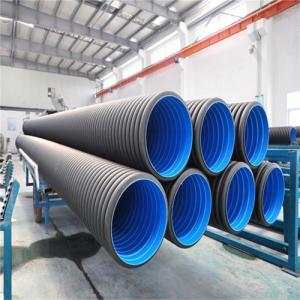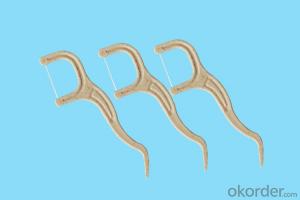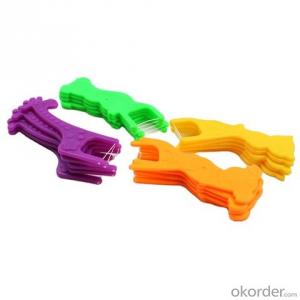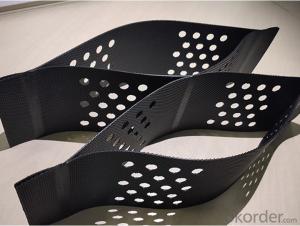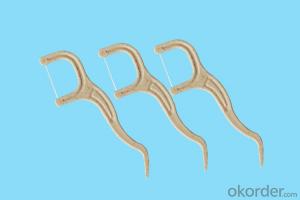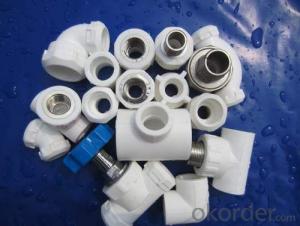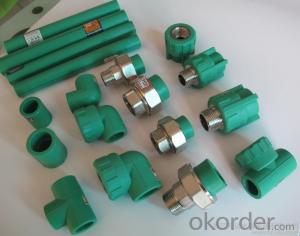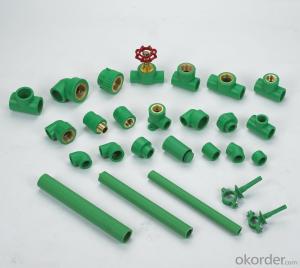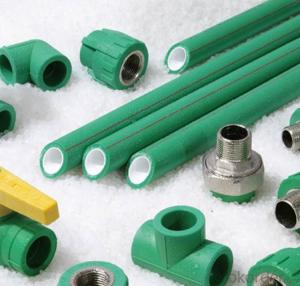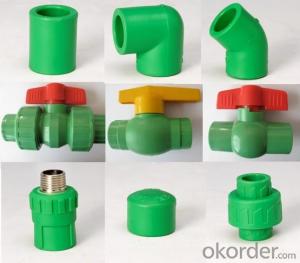PPR Elbow for Hot and Cold Water Conveyance with Safety Guaranty in 2017
- Loading Port:
- Shanghai
- Payment Terms:
- TT OR LC
- Min Order Qty:
- 1000 pc
- Supply Capability:
- 1000000 pc/month
OKorder Service Pledge
OKorder Financial Service
You Might Also Like
Product Overview:
1.It is used in industrial fields, agriculture and irrigation.
2.Beauty appearance.
3.Thermal insulation and energy saving.
4.Easy installation
5.excellent heat resistance and pressure resistance
6.affordable price
Product Application
1.Potable water for cold and warm water installations
2.For rainwater utilization systems
3.For compressed air plants
4.For swimming pool facilities
5.For solar plants
6.For agriculture and horticulture
7.Heating pipes for residential housing
8.For industry.
Packaging Details:
1. Large carton: 515 x 400x 220 Cubage: 0.04532 M3
Small carton: 390x255x250 Cubage: 0.0248 M3
2. PE poly bag+ carton Delivery Detail: 15 days/ 20" container; 25 days/ 40HQ
Product Description
Pressure | Size(mm) | Pressure | Size(mm) |
PN1.25MPA | 20*2.0 |
PN1.6MPA | 20*2.3 |
25*2.3 | 25*2.8 | ||
32*2.9 | 32*3.6 | ||
40*3.7 | 40*4.5 | ||
50*4.6 | 50*5.6 | ||
63*5.8 | 63*7.1 | ||
75*6.8 | 75*8.4 | ||
90*8.2 | 90*10.1 | ||
110*10.0 | 110*12.3 |
Product Show
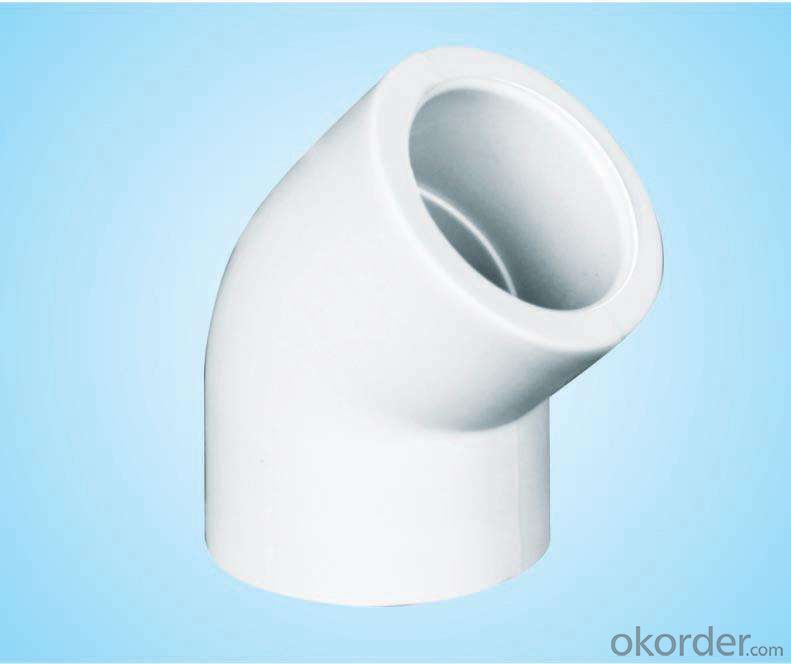
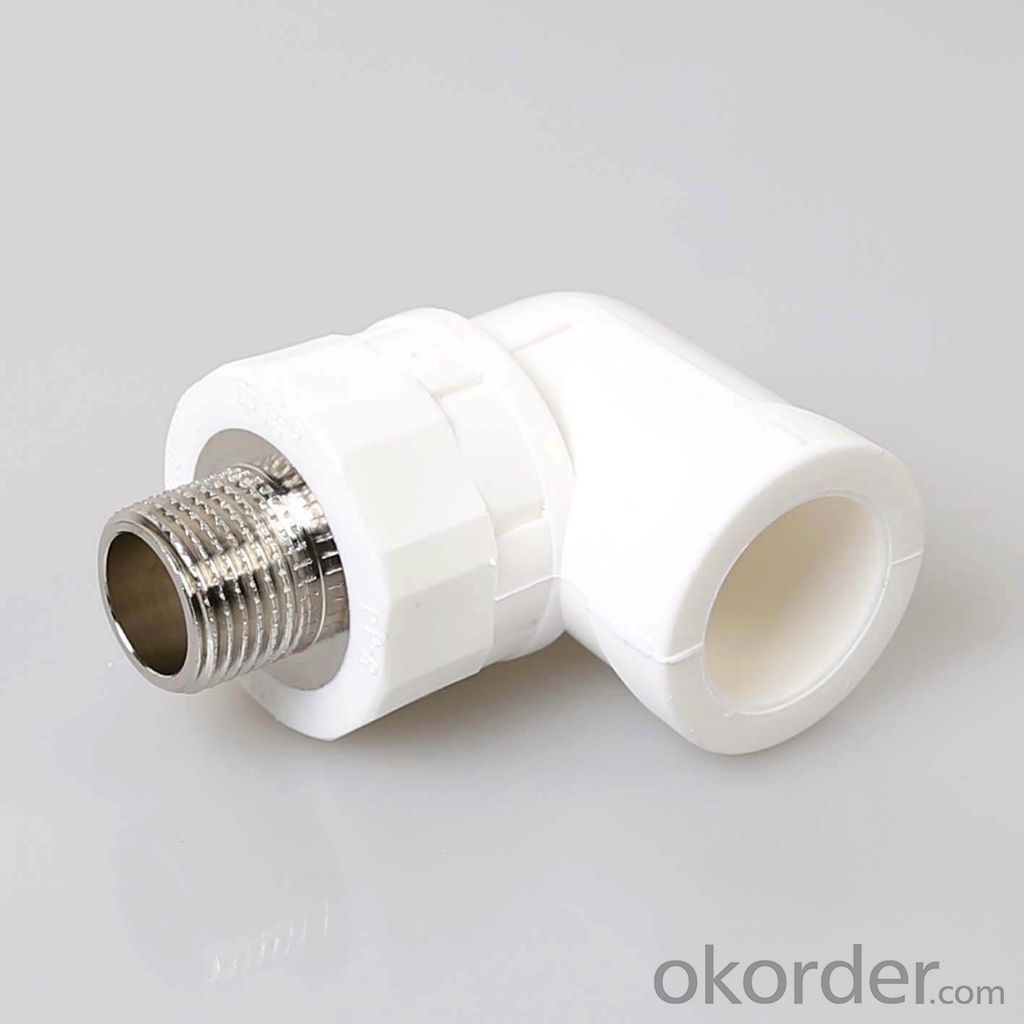
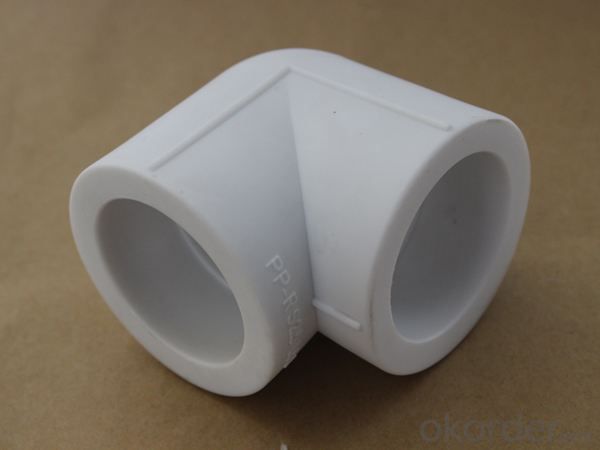
Our Advantages:
1) Healthy, bacteriological neutral, conforming to drinking water standards
2) Resistant to high temperatures, good impact strength
3) Convenient and reliable installation, low construction expenses
4) Excellent heat-insulation property from minimum thermal conductivity
5) Lightweight, convenient to transport and handle, good for labor-saving
6) Smooth inner walls reduce pressure loss and increase flow speed
7) Sound insulation (reduced by 40% compared to galvanized steel pipes)
8) Light colors and excellent design ensure suitability for both exposed and hidden installation
9) Recyclable, environment-friendly, accords with GBM standards
FAQ
Q1: How Can I Get A Sample?
A1: You can get samples by communicate with our export sales.
Q2: How Long Is Delivery?
A2: Delivery time will be30-45days according to order quantity.
Q3: What Is The MOQ?
A3: MOQ depends on different items.
Q4: What Is Our Normal Payments Terms?
A4: Our normal payment terms now is: T/T, L/C or western union, pay
- Q:Can plastic pipe fittings be used for chemical processing systems?
- Plastic pipe fittings can be used for chemical processing systems, but it is important to choose the right type of plastic that is compatible with the chemicals being used. Certain plastics, such as PVC, CPVC, and PTFE, are commonly used in chemical processing due to their chemical resistance properties. However, it is crucial to consult with experts and consider the specific application requirements before selecting plastic pipe fittings for chemical processing systems.
- Q:Can plastic pipe fittings be used for gas piping?
- No, plastic pipe fittings should not be used for gas piping. Gas piping requires materials that are specifically designed and approved for gas applications, such as steel or copper fittings, due to the safety risks associated with gas leaks and potential fire hazards.
- Q:Can plastic pipe fittings be used in drainage systems?
- Yes, plastic pipe fittings can be used in drainage systems. Plastic fittings are commonly used in plumbing and drainage systems due to their durability, resistance to corrosion, and ease of installation. They are available in various sizes and configurations to suit different drainage needs.
- Q:Can plastic pipe fittings be used in fire hose reel systems?
- No, plastic pipe fittings should not be used in fire hose reel systems. It is important to use fittings made of materials that are specifically designed and approved for fire safety, such as brass or stainless steel. These materials have the necessary durability and resistance to high pressure and heat that are crucial in fire-fighting situations.
- Q:What are the different pressure ratings for plastic pipe fittings?
- The pressure ratings for plastic pipe fittings vary depending on the type of plastic used and the intended application. Some common pressure ratings for plastic pipe fittings include 80 psi (pounds per square inch), 100 psi, 125 psi, and 150 psi. It is important to consult the manufacturer's specifications or industry standards to determine the appropriate pressure rating for specific plastic pipe fittings.
- Q:Can plastic pipe fittings be used for fuel transfer systems?
- No, plastic pipe fittings should not be used for fuel transfer systems. Plastic is not compatible with fuel and can degrade, leak, or cause a potential fire hazard. It is recommended to use fittings made from materials specifically designed for fuel transfer, such as metal or specialized fuel-resistant plastics.
- Q:What are the common testing methods for plastic pipe fittings?
- Common testing methods for plastic pipe fittings include hydrostatic pressure testing, burst testing, tensile testing, impact testing, and dimensional testing. These tests are conducted to ensure the quality, strength, durability, and overall performance of the fittings.
- Q:Can plastic pipe fittings be used for chemical mixing systems?
- No, plastic pipe fittings are generally not recommended for chemical mixing systems as they may not be compatible with certain chemicals and can degrade or react with them, leading to leaks, contamination, or even hazardous situations. It is advisable to use fittings specifically designed for chemical mixing systems, such as those made from materials like stainless steel or other chemically resistant materials.
- Q:Are plastic pipe fittings resistant to scale and sediment buildup?
- Yes, plastic pipe fittings are generally resistant to scale and sediment buildup. The smooth inner surface of plastic pipes reduces the likelihood of deposits forming, ensuring long-term functionality and minimizing maintenance requirements.
- Q:Are plastic pipe fittings resistant to rodents?
- Yes, plastic pipe fittings are generally resistant to rodents. The material used in plastic pipe fittings is not appealing to rodents, and they do not chew through it as they would with other materials like wood or metal. Therefore, plastic pipe fittings are a reliable option to prevent rodent infestations in plumbing systems.
1. Manufacturer Overview |
|
|---|---|
| Location | |
| Year Established | |
| Annual Output Value | |
| Main Markets | |
| Company Certifications | |
2. Manufacturer Certificates |
|
|---|---|
| a) Certification Name | |
| Range | |
| Reference | |
| Validity Period | |
3. Manufacturer Capability |
|
|---|---|
| a)Trade Capacity | |
| Nearest Port | |
| Export Percentage | |
| No.of Employees in Trade Department | |
| Language Spoken: | |
| b)Factory Information | |
| Factory Size: | |
| No. of Production Lines | |
| Contract Manufacturing | |
| Product Price Range | |
Send your message to us
PPR Elbow for Hot and Cold Water Conveyance with Safety Guaranty in 2017
- Loading Port:
- Shanghai
- Payment Terms:
- TT OR LC
- Min Order Qty:
- 1000 pc
- Supply Capability:
- 1000000 pc/month
OKorder Service Pledge
OKorder Financial Service
Similar products
New products
Hot products
Related keywords
